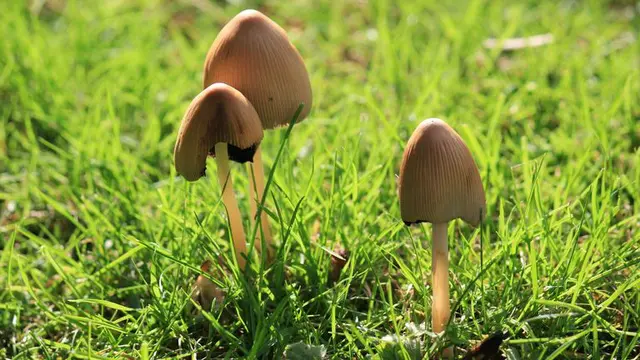Evidence supporting the use of psychedelic drug psilocybin as a treatment for depression is growing, with a new study uncovering its long-term effects on the brain.
The drug is naturally produced by hundreds of species of fungi, and some anthropologists have suggested that evidence of their use in religious ceremonies dates back 6,000 years.
A new study by scientists at Yale, published in the journal Neuron, has found that a single dose of psilocybin in mice caused an immediate and lasting increase in connections between neurons.
"We not only saw a 10% increase in the number of neuronal connections, but also they were on average about 10% larger, so the connections were stronger as well," said Yale's Alex Kwan, the paper's senior author and an associate professor of psychiatry and neuroscience.
The study supports the findings of previous laboratory experiments that indicate psilocybin and the aesthetic ketamine - both popular recreational drugs - can decrease depression.
According to the researchers at Yale, they do this by increasing the density of what are called dendritic spines, the small protrusions found on nerve cells which aid in the transmission of information between neurons.
"Chronic stress and depression are known to reduce the number of the neuronal connections," researchers explained.
The growth of dendritic spines in living mice was tracked over a number of days using a laser-scanning microscope.
The researchers found that within just 24 hours of the dose, the number of these spines and their size had increased - and that these changes were still present a month after the single dose.
Stress tests on the mice following the dose also found behavioural improvements and increased neurotransmitter activity.
How psilocybin causes these neural changes is known, however, and the researchers consider that the physiological changes are a product of the psychological experience that the psychedelic brings.
"It was a real surprise to see such enduring changes from just one dose of psilocybin," said Alex Kwan. "These new connections may be the structural changes the brain uses to store new experiences."
 简体中文
简体中文

